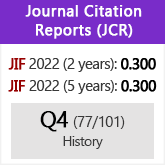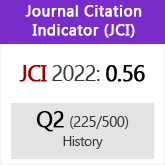Communism’s “Bright Past”: Loyalty to the Party despite the Gulag
DOI:
https://doi.org/10.3989/chdj.2014.015Keywords:
Soviet repression, victims, survivors, belief, labor camps, trauma, StalinismAbstract
The Soviet Gulag has joined the tragic annals of what has been described as “man’s inhumanity to man”. Yet some prisoners, many of whom were falsely convicted, emerged from the experience maintaining their loyalty to the system of government that was responsible for their imprisonment. The hardship of the camp experience, and the hardship of return, stamped ex-prisoners for life. In camp, they struggled to survive. After camp they struggled to reintegrate, to re-unite, and for Party members, to renew their vows with the Party. This article focusses on Gulag prisoner and returnee accounts that profess enduring faith in the Party and the Communist project. With the materials that have become available, we can now begin to understand this phenomenon. Explanations include: Communism as secular religion, cognitive dissonance, functionalism, and the traumatic bond. As we witness a persistent trend to manage national and public memory by repressing the memory of repression in today’s Russia, the issue of enduring loyalty among Gulag returnees may offer some insight into questions related to national memory and the dynamics of repressive regimes.
Downloads
References
Adler, Herbert M. and Van Buren, Hammett O. (1973) ";Crisis, Conversion, and Cult Formation: An Examination of a Common Psychosocial Sequence";. American Journal of Psychiatry, 130, 8: 861-864. http://dx.doi.org/10.1176/ajp.130.8.861 PMid:4351998
Adler, Nanci (2012) Keeping Faith with the Party: Communist Believers Return from the Gulag. Indiana University Press, Bloomington.
Adler, Nanci (2005) ";The Future of the Soviet Past Remains Unpredictable: The Resurrection of Stalinist Symbols amidst the Exhumation of Mass Graves";. Europe-Asia Studies, 57: 1093-1119. http://dx.doi.org/10.1080/09668130500351100
Bevernage, Berber (2010) ";Writing the Past Out of the Present: History and Politics of Time in Transitional Justice";. History Workshop Journal, 69: 111-131. http://dx.doi.org/10.1093/hwj/dbq008
Festinger, Leon A. (1957) A Theory of Cognitive Dissonance. Stanford University Press, Stanford.
Frankl, Viktor (1959) Man's Search for Meaning: An Introduction to Logotherapy. Hodder and Stoughton, London.
Gagen-Torn, Nina (2004) ";O verakh";. In Dodnes' Tiagoteet, edited by Vilenskii, Semion, t. II, Vozvrashchenie, Moscow.
Gavrilov, Lev (2004) ";Zapasnoi Kommunist,"; In Dodnes' Tiagoteet, edited by Vilenskii, Semion, t. II, Vozvrashchenie, Moscow: 225-234.
Gow, James (2007) ";Dark Histories, Brighter Futures: The Balkans and Black Sea Region: European Union Frontiers, War Crimes and Confronting the Past";. Southeast European and Black Sea Studies, 7: 345-355. http://dx.doi.org/10.1080/14683850701565700
Harmon-Jones, Eddie and Mills, Judson (1997) ";An Introduction to Cognitive Dissonance Theory and an Overview of Current Perspectives on the Theory";. In Cognitive Dissonance: Progress on a Pivotal Theory in Social Psychology, edited by Harmon-Jones, Eddie and Mills, Judson. American Psychological Association, Washington: 3-24.
Inkeles, Alex and Bauer, Raymond (1961) The Soviet Citizen: Daily Life in a Totalitarian Society. Harvard University Press, Cambridge.
Goti, Jaime Malamud (2010) ";Editorial Note: A Turbulent Past and the Problem with Memory";. The International Journal of Transitional Justice, 4: 153-165. http://dx.doi.org/10.1093/ijtj/ijq011
Roginskii, Arsenii (2011) ";Pamiat'o Stalinizme";. In Istoriia stalinizma: itogi i problem izucheniia, edited by E. Iu. Kandrashina et al. ROSSPEN, Moscow: 23-27.
Simpson, Jeffry A. and Rholes, William S. (1994) ";Stress and secure base relationships in adulthood";. Advances in Personal Relationships, 5: 181-204.
Published
How to Cite
Issue
Section
License
Copyright (c) 2014 Consejo Superior de Investigaciones Científicas (CSIC)

This work is licensed under a Creative Commons Attribution 4.0 International License.
© CSIC. Manuscripts published in both the printed and online versions of this Journal are the property of Consejo Superior de Investigaciones Científicas, and quoting this source is a requirement for any partial or full reproduction.All contents of this electronic edition, except where otherwise noted, are distributed under a “Creative Commons Attribution 4.0 International” (CC BY 4.0) License. You may read here the basic information and the legal text of the license. The indication of the CC BY 4.0 License must be expressly stated in this way when necessary.
Self-archiving in repositories, personal webpages or similar, of any version other than the published by the Editor, is not allowed.

















